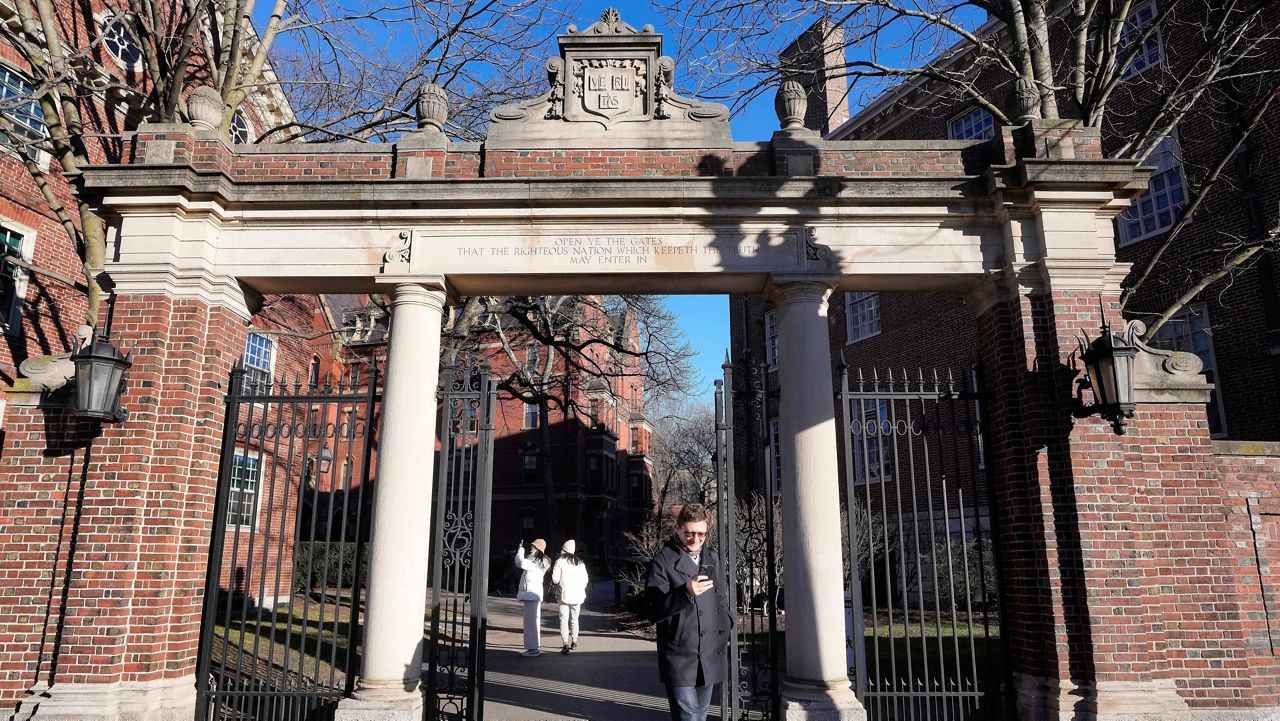Harvard University has removed human skin binding from a book that has been in its library collection for 90 years and apologized for its “past failures” in managing the volume.
The book’s first owner, Ludovic Bouland, a French doctor, bound the book with skin he took without consent from a deceased female patient in a hospital where he worked, according to Harvard Library.
What You Need To Know
- Harvard University has removed human skin binding from a book that has been in its library collection for 90 years and apologized for its “past failures” in managing the volume
- The book’s first owner, Ludovic Bouland, a French doctor, bound the book with skin he took without consent from a deceased female patient in a hospital where he worked, according to Harvard Library
- The skin of the unknown woman is currently in secure storage and Harvard Library said it’s consulting with authorities at the university and in France to determine a respectful way to lay the remains to rest
- In 2022, a Harvard committee examining human remains in university museum collections recommended the removal of the human skin from the book
The work, “Des destinées de l’âme,” written by by Arsène Houssaye in the 1880s, is described as a meditation on the soul and life after death. A handwritten note by Bouland inserted into the book reads “a book about the human soul deserved to have a human covering,” Harvard said.
Bouland died in 1933. A year later, the volume landed at Harvard, donated by American diplomat and hat maker John B. Stetson, an alumnus of the university.
“After careful study, stakeholder engagement, and consideration, Harvard Library and the Harvard Museum Collections Returns Committee concluded that the human remains used in the book’s binding no longer belong in the Harvard Library collections, due to the ethically fraught nature of the book’s origins and subsequent history,” Harvard Library said in a statement Wednesday.
The skin of the unknown woman is currently in secure storage and Harvard Library said it’s consulting with authorities at the university and in France to determine a respectful way to lay the remains to rest.
Harvard’s Houghton Library long made the book available to anyone who requested it. Harvard Library said that, according to “library lore,” students who worked at Houghton were hazed decades ago by being asked to retrieve the volume without being told it included human remains.
After Harvard scientists confirmed in 2014 the book was bound with human skin, Houghton Library published two blog posts, now deleted, that struck a “sensationalistic, morbid, and humorous tone,” Harvard Library said.
“Harvard Library acknowledges past failures in its stewardship of the book that further objectified and compromised the dignity of the human being whose remains were used for its binding,” the library system said. “We apologize to those adversely affected by these actions.”
In 2022, a Harvard committee examining human remains in university museum collections recommended the removal of the human skin from the book.
The review was largely driven by a reckoning with the role of slavery and colonialism in establishing U.S. universities and museum. But some discoveries, such as the “Des destinées de l’âme” volume, fell outside that area of focus.
In all, Harvard identified more than 22,000 human remains in its museum collections, including full skeletons, bone fragments, teeth and locks of hair.
The library began restricting access to Houssaye’s book in 2015 and placed a full moratorium on new research access to it last year.
Harvard Library said digital scans of the book, without the human skin, are publicly available.



